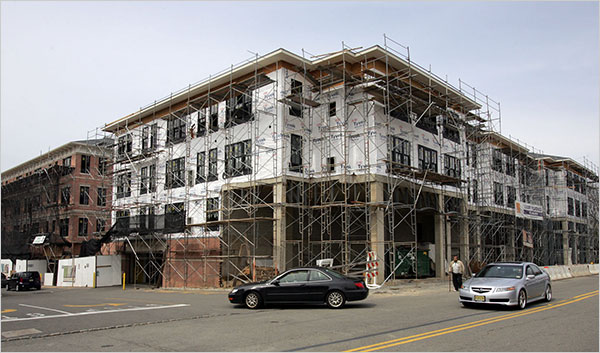New Jersey Future Blog
Municipalities Need a “Smart Growth Shield”
June 19th, 2001 by New Jersey Future staff
Protecting Municipalities
- A State Appellate Court this month upheld Mount Olive Township’s rezoning of a parcel of land to limit development, because the zoning change was based on the State Plan.
- State courts have regularly upheld rezoning when the State Plan was a factor in the decision. This case marks the first time the courts have said in essence that the State Plan can be used by itself to justify a zoning change.
- Traditionally, zoning changes are made reluctantly even to save a community’s character, according to local leaders interviewed by New Jersey Future. This is in large part because of the costs of defending such changes against legal challenges by moneyed developers or large landowners.
- Such fears aren’t unjustified: East Amwell Township spent 10 percent of its $2.4 million annual budget in the last fiscal year alone defending its attempts to preserve local farmland.
Many local leaders tell New Jersey Future they are reluctant to use zoning local development pressure, because of the legal costs of defending them. These tools include “down-zoning,” which reduces the number of units that can be placed on a parcel of land, and “up-zoning,” which increases the number of units on land where development is desired. Both can be especially effective measures of preserving local open space.
New Jersey communities need a “smart growth shield” for making smarter land-use decisions. New Jersey Future recommends the State defend all municipalities that adopt master plans and zoning ordinances consistent with the State Plan. This could take the form of legal support from the State Attorney General’s Office or full financial indemnification by the state against landowner or builder lawsuits. (See “20 Ways to Move NJ Toward a More Prosperous, Just and Healthy Future,” on-line at www.njfuture.org)
Similar systems already operate in other states. The State of New York defends the county of Suffolk and municipalities within the Central Pine Barrens area of Long Island from suits brought against those entities for land-use measures consistent with the regional management of that area. Other states provide monetary compensation schemes. Maine created a fund designed specifically to compensate municipalities for legal expenses incurred in the enforcement of local land-use laws and ordinances affecting designated “great ponds.”
Such defense offers three significant benefits: It would accelerate local implementation of the State Plan and so the rebuilding of New Jersey communities, and the protection of regional open lands; it would empower municipalities to make the best land-use decisions for their community, without fear of having to defend themselves in court; and it would present a more efficient and less costly way of resolving development disputes.
















